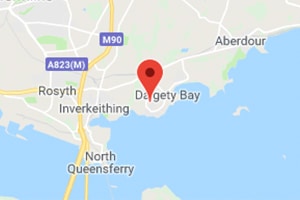Landlord electrical checks are an essential aspect of property management in the UK, ensuring the safety of tenants and compliance with regulations. Since July 2020, the UK government has required landlords to conduct electrical safety checks every five years, carried out by a registered competent professional. This obligation aims to maintain the safe operation of electrical installations in rented properties, with landlords responsible for providing tenants with a copy of the report.
These inspections assist in identifying potential hazards and maintaining the overall electrical safety standards within the private rented sector. Not only do these checks protect tenants and landlords, but they also contribute to reducing the risk of electrical fires and accidents. In addition to fulfilling their legal obligations, landlords who keep their properties up to date with electrical safety standards are likely to attract responsible and long-term tenants, therefore benefiting both parties.
For landlords seeking compliance with these electrical safety requirements, it is vital to be aware of the specific regulations, such as providing tenants with the electrical installation condition report (EICR) within 28 days of the checks being conducted. Understanding the importance of proper electrical checks and adhering to relevant timings and documentation will ensure landlords meet their obligations and uphold high safety standards in the private rented sector.
Legal Requirements for Landlord Electrical Checks
Electrical Safety Standards in the Private Rented Sector (England) Regulations 2020
The Electrical Safety Standards in the Private Rented Sector (England) Regulations 2020 came into force on June 1, 2020. These regulations require landlords to:
- Ensure that the electrical installations in their properties are inspected and tested by a qualified and competent person.
- Carry out the inspection and testing at an interval of at least every five years.
- Provide a copy of the electrical installation condition report (EICR) to tenants within 28 days of the inspection.
Additionally, landlords must make sure that their properties meet the standards set out by the regulations throughout the tenancy. If a fault or potential danger is found during the inspection, landlords are responsible for rectifying the issue.
Periodic Electrical Inspection Reports
A Periodic Electrical Inspection Report (PEIR) or Electrical Installation Condition Report (EICR) is a detailed assessment of a property’s electrical installation. The inspections are carried out by qualified electricians, who check the safety of the electrical system and identify any potential hazards. The report also details any remedial work required to ensure the property meets safety standards.
Landlords are required to obtain an up-to-date PEIR or EICR for their properties, which must be conducted at least every five years. According to the guidance for tenants, landlords must provide a copy of the current EICR to:
- New tenants before they occupy the property
- Existing tenants within 28 days of the inspection
- Local authorities upon request within seven days
Overall, these legal requirements are in place to ensure the safety and well-being of tenants in the private rented sector. By adhering to these regulations, landlords can provide a secure living environment while avoiding potential fines or legal disputes.
Frequency of Electrical Checks
Minimum Legal Requirements
In the United Kingdom, the law mandates that landlords of private rented properties must have the electrical installations within their premises inspected and tested at intervals of no more than 5 years. This legal requirement applies to all new specified tenancies in England from 1st July 2020, and to all existing specified tenancies from 1st April 2021. Landlords are required to hire a qualified and competent person to carry out these checks.
Additional Precautions
While the minimum requirement is to carry out electrical checks every 5 years, some scenarios might warrant more frequent checks. These scenarios may include:
- New Build Properties: If a rental property is newly constructed, it is advised to conduct electrical safety checks as soon as possible.
- Recent Electrical Work: If any new electrical installations or significant alterations were recently made within the property, it would be prudent to perform safety checks promptly after completion.
- High-Risk Properties: For properties with a history of electrical issues or compromised safety, landlords should consider more frequent checks to reduce the risk of accidents.
- Change of Tenancy: Although not a legal requirement, it’s good practice to perform an electrical safety check whenever a new tenant moves in. This precaution helps ensure that all electrical installations are in a safe and satisfactory condition for the incoming tenant.
In conclusion, adhering to the minimum legal requirements for electrical safety checks is essential for landlords in the UK. However, additional precautions in specific circumstances may further ensure the safety and well-being of tenants.
Responsibilities of Landlords
Maintaining Electrical Systems
Landlords in the UK have a legal obligation to ensure that their properties are safe for tenants. This includes maintaining the electrical systems and ensuring they meet the required safety standards. According to the government guidelines, landlords should:
- Regularly inspect and test electrical installations, such as wiring and sockets.
- Ensure any necessary repairs or maintenance are carried out promptly.
- Provide safe and suitable electrical appliances for tenants to use, if they are included in the rental agreement.
It is recommended that landlords carry out electrical safety checks at least every five years, or more frequently if there are concerns about the installation. Additionally, portable appliance testing (PAT) should be conducted between tenancy agreements to ensure that electrical appliances are safe for new tenants.
Provision of Safety Certificates
Landlords must provide tenants with electrical safety certificates, which confirm that the property’s electrical systems and appliances have been inspected and comply with safety standards. These certificates should be provided to:
- New tenants at the beginning of their tenancy.
- Existing tenants within 28 days of the electrical safety check being completed.
- Local authorities upon request, as stated in the government guidelines.
Failure to comply with these responsibilities can result in penalties, including financial fines and legal action. Landlords must also keep records of all inspections, tests, and maintenance carried out on their properties to ensure they can demonstrate their compliance with safety obligations if required.
Penalties for Non-Compliance
Landlords in the UK are required to comply with electrical safety standards to ensure the safety of their tenants. Failure to comply can result in financial penalties imposed by local authorities. In this section, we will discuss the penalties for non-compliance when it comes to electrical safety checks for landlords in the UK.
Local authorities have the responsibility for enforcing electrical safety regulations in the private rented sector. One of the most significant penalties a landlord can face for non-compliance is a financial penalty of up to £30,000. This significant amount serves as a deterrent for landlords who may attempt to ignore the regulations and put their tenants at risk.
In addition to financial penalties, local authorities have the power to serve remedial notices on landlords who fail to comply with electrical safety standards. A remedial notice is a formal order requiring the landlord to carry out necessary repairs or improvements to meet the required standards. If a landlord fails to comply with a remedial notice, they may need to cover the costs for carrying out the remedial work. Failure to comply with a remedial notice may also result in additional financial penalties.
To summarise, the penalties for non-compliance with electrical safety checks for UK landlords include:
- Financial penalties of up to £30,000
- Remedial notices
- Potential responsibility for the costs of remedial work
It is essential for landlords to familiarise themselves with the electrical safety standards and ensure their properties comply with the regulations to avoid these penalties and provide a safe living environment for their tenants.
Finding a Qualified Electrician
Requirements for Electricians
In the United Kingdom, private landlords are required to have electrical installations in their properties inspected and tested by a qualified and competent electrician at least every 5 years. It’s crucial for landlords to ensure the electrician has the appropriate qualifications and competency to carry out the safety checks.
Qualified electricians should have:
- NVQ Level 3 certification in Electrical Installation, Inspection, and Testing.
- Certification from competency schemes like NICEIC, ELECSA, or NAPIT.
To verify if an electrician is qualified and competent, landlords may check with the Competent Person Register.
Approved Contractor Schemes
There are several approved contractor schemes in the UK that maintain a register of qualified and competent electricians. These schemes ensure electricians adhere to proper safety standards and practices. The most recognized schemes are:
- NICEIC: The National Inspection Council for Electrical Installation Contracting is the UK’s largest certification body for the electrical contracting industry, offering assessment and certification services for electricians.
- ELECSA: ELECSA is dedicated to providing certification and assessment for electricians working across the building services sectors, promoting professionalism and quality.
- NAPIT: The National Association of Professional Inspectors and Testers is another widely recognized certification body in the UK, providing accreditation and support services to electricians.
Landlords may search for a qualified electrician through these scheme websites or other trusted resources like Checkatrade, a directory of vetted and approved tradespeople.
By hiring a qualified electrician registered in one of these approved contractor schemes, landlords can ensure they comply with the electrical safety standards and regulations required for their properties.
Conclusion
Landlord electrical checks play a crucial role in ensuring the safety of tenants in the private rented sector. In the UK, it is legally required for landlords to have electrical safety checks carried out by a registered competent professional every five years. This requirement applies to all new specified tenancies from 1st July 2020 and all existing specified tenancies from 1st April 2021.
It is essential for landlords to stay informed about the electrical safety regulations and to comply with them. Such compliance helps in reducing the risk of electrical fires, injuries, or fatalities. Regular inspections by a qualified and competent professional ensure that the electrical installations in a property remain safe and functional.
By adhering to these legal requirements and undergoing the necessary electrical safety checks, landlords can play a vital role in protecting their tenants’ well-being. At the same time, this practice can also help prevent potential legal disputes, financial losses, and damage to their property.
In conclusion, understanding and following the guidelines for electrical safety checks in the private rented sector is instrumental in maintaining a safe living environment for tenants and securing the interests of landlords.

